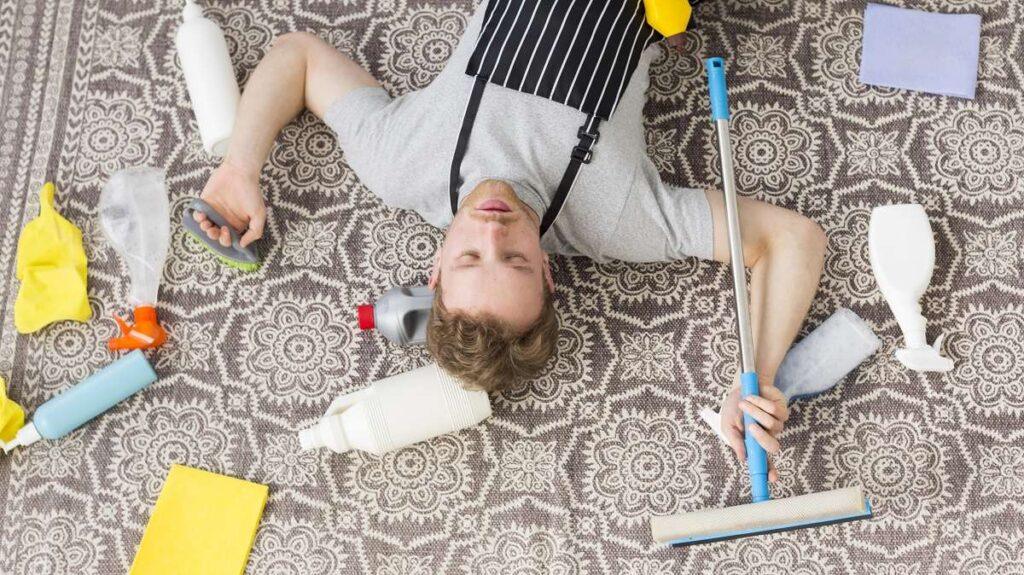If a child’s room often looks like a battlefield with toys and scattered clothes, it’s not an unusual situation. Clutter in children’s rooms is a common problem found in many homes. Understanding the causes can help find practical ways to organize the space.
Why do children have a mess in their room?
Children are characterized by great creativity and curiosity. The room often serves as a place for experiencing and exploring. Various items, such as toys, blocks, or books, stimulate imagination and inspire action. Clutter can be the result of spontaneous play and experimentation.
Lack of organizational skills.
The ability to organize develops over time. Younger children are just learning to keep things tidy. Their interests change dynamically, leading to frequent interruptions of one activity for another. Immature planning skills and difficulties in maintaining consistency contribute to the mess.
Too many items.
An excessive number of things, such as toys, clothes, or accessories, can make it difficult to maintain order. Overloading the space causes the child to easily get lost and lose control over their surroundings. Organizational difficulties also arise from a lack of a clear storage system.
Limited storage space.
The absence of tailored storage solutions, such as bins, shelves, or cabinets, can cause chaos. When items don’t have a designated place, they often end up on the floor or furniture, making it hard to keep things organized.
Spontaneity of play.
Children often focus on the current play without paying attention to order. The excitement of creative activities makes cleaning take a backseat. Intense play can be the main reason for temporary disorder.
Low awareness of consequences.
Cleaning seems monotonous or effortful to children. They don’t always realize that an organized environment makes daily functioning easier, such as quickly finding a favorite item.
How to deal with the mess?
Introducing simple organizational rules and limiting the number of items can significantly ease the maintenance of order. Adapting the space to the needs of the child and encouraging the learning of tidying habits are steps that help maintain order in a child’s room.
How to encourage children to clean their room?
Cleaning the room can be a real challenge for many parents. We often hear from our little ones: “I don’t want to clean” or “I have better things to do.” But is there a way to convince children that having an orderly room has many benefits? Of course! Today, we will suggest a few simple and effective ways to encourage children to clean their room in a pleasant and motivating way.
- Create a friendly atmosphere: It is important that cleaning is not associated with a chore or punishment. Try to create a friendly atmosphere that will make your child want to help. You can play music, sing together, or talk while cleaning. Remember that the time spent together can be just as valuable as the order itself.
- Utilize a storage system: Design a storage system with your child that will be intuitive and easy for them to use. You can use boxes, baskets, or shelves so that each toy has its place; label containers or shelves for specific types of toys or clothes.
- Let’s create a joint action plan: Instead of imposing your expectations, it’s worth seeking your children’s opinions. Ask them how they envision cleaning their room and what could make the process enjoyable for them. Maybe they have an idea for organizing the space or want to use colorful toy bins? Give them a sense that they have a real impact on how their room will look.
- Make cleaning fun: Children love games and toys, so it’s worth using this fascination for cleaning their room. You can create a game where your child earns points for each task completed. You can also use a timer to make cleaning a race against time. We can also use colorful cardboard boxes and organize competitions where children have to find the right place for their toys. The more fun and creative the approach, the greater the chance of engaging the child.
- Motivate with rewards: Introduce a reward system for cleaning the room. Sometimes a compliment, a smile, or a special activity you can do together after cleaning is enough. Children like to be appreciated and to see that their efforts are valued.
- Set a good example: Children often learn by imitation. If they see that we keep our surroundings tidy, they will be more inclined to take similar actions. Therefore, we can use cleaning the room as an opportunity to clean the entire house together. It will be more enjoyable and effective together.
- Break cleaning into smaller steps: Cleaning tasks can be divided into smaller stages, which will make it easier for the child to grasp the whole. Instead of ordering them to clean the entire room at once, you can ask them to do a specific task. For example, ask the child to pick up the toys or fold the clothes. This way, you will achieve small successes along the way, which will motivate them to continue.
- Let’s create order together: It’s worth remembering that cleaning the room is not just the child’s duty, but also an opportunity to spend time together. We can talk, sing, listen to audiobooks, or arrange toys together. By creating such pleasant moments, we will show our children that cleaning can be fun and valuable.
Encouraging children to clean their room may require some creativity and patience, but the results will be worth it. Remember that learning to keep things tidy is an important skill that will accompany our children throughout their lives. Therefore, let’s combine the pleasant with the useful and make cleaning a fun and satisfying experience for our kids.
Make cleaning the room a pleasant routine that not only brings order but also strengthens the relationship between you and your child.


